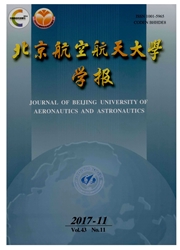

 中文摘要:
中文摘要:
绝大多数供应链契约文献研究的是如何通过契约机制设计来协调由两个独立实体组成的供应链系统。但实际中供应链通常由多于两个的独立经济实体纽成。文章旨在研究随机市场需求下由制造商、分销商和零售商组成的三阶层供应链系统的协调问题。文章设计了联合应用退货契约和利润共享契约的协调机制,分析证明了通过制定合理的契约参数能够实现系统协调,并能实现系统收益的不同分配。最后,通过算例说明了机制设计的有效性,并作了相应的分析。
 英文摘要:
英文摘要:
The problem of how to coordinate a two-level supply chain with contracts has been discussed in most literature, but supply chain is often consisted of more than two separate entities in fact. This paper aims to study coordination in a three-level supply chain which consists of a manufacturer, a wholesaler and a retailer under stochastic demand. The wholesaler transacts with the retailer by providing a buy back contract and the manufacturer transacts with the wholesaler by a profit-sharing contract. In this case the paper designs a coordination mechanism and validates that the different divisions of channel profit can be realized by tuning contract parameters. Finally, the validity of the contract mechanism is illustrated by a numerical example.
 同期刊论文项目
同期刊论文项目
 同项目期刊论文
同项目期刊论文
 期刊信息
期刊信息
